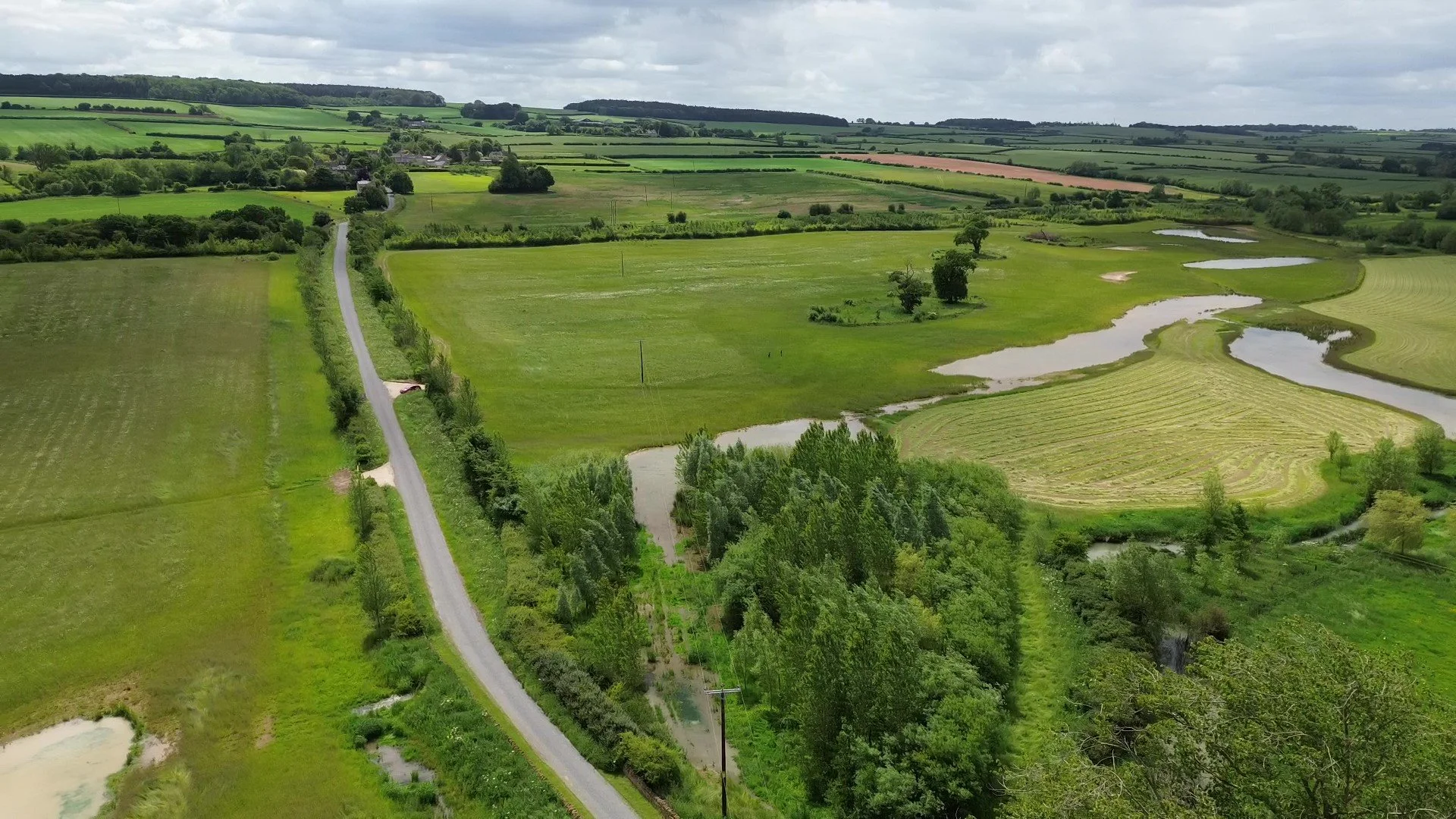The River Evenlode is at the heart of an ambitious new project that sets a precedent for biodiversity conservation in West Oxfordshire. Spanning 35 hectares (50 football pitches) at Pudlicote Farm near Chipping Norton, this habitat restoration initiative is the first in the region to be secured through a Section 106 agreement highlighting its significance as a cornerstone of sustainable development.
This legal agreement (a planning obligation) between the landowner and the local planning authority – in this case, Bradley Wiggins and West Oxfordshire District Council – ensures that the habitat will be enhanced and maintained for at least 30 years, following an agreed-upon management plan.
Over that time, the project will transform arable farmland into a rich mosaic of floodplain wetlands, lowland meadows, scrub, and woodland. These restored habitats will be managed to support a biodiverse ecosystem - from fungi that underpin soil health to a diversity of flora and fauna that rely on them.
Improving the health of the River Evenlode through BNG
Floodplain wetlands will play a critical role in natural flood management, absorbing excess water during heavy rains and alleviating flood risks downstream. They will also provide a feeding ground for wildlife, including endangered species such as curlews, barn owls, and water voles. Traditional management of the floodplain meadows will restore valuable habitat for the host of insects that rely on these nectar-rich habitats and the introduction of scrub and woodland will provide nesting sites, food sources, and shelter for birds, mammals, and insects, creating a dynamic and interconnected wetland ecosystem.
The benefits of this restoration extend beyond the immediate area. By restoring these habitats, the project contributes to regional climate resilience and enhances water quality in the River Evenlode. The biggest threat to freshwater habitats, like the River Evenlode, is an excessive inflow of nutrients, particularly nitrates and phosphates mainly from treated sewage and agricultural runoff. The Evenlode is no exception: it has seen a steep decline in health in recent years. By managing the site for nature, fewer agricultural chemicals will enter the Evenlode and travel downstream, helping improve the river’s health. This flagship project will show how well-planned biodiversity net gain projects can achieve tangible, landscape-scale impacts.
Generating income from unprofitable land with BNG
Existential pressures on farmers (climate change being not the least of them) mean it is becoming increasingly risky for them to rely on traditional methods to generate the income required to run resilient farm businesses. This landowner chose these fields precisely because they were not reliably returning a profit. After all, it is hard to grow cereal crops when the soil is a foot underwater. Biodiversity net gain provided a way for this landowner to diversify their farm business and spread risk while still producing food on the more productive fields of the farm. At TOE, we recognise the need for food security in the UK which is why we always try to work with farmers to deliver the right habitats in the right place.
This project represents more than ecological restoration; it’s a step toward a future where nature is integral to planning and development. As the restoration unfolds, we hope this project will serve as a model for other communities and developers, showcasing how Section 106 agreements can deliver long-term benefits for both people and nature.
Read West Oxfordshire District Council’s post here: Council helps to establish new habitat bank at Pudlicote Farm | West Oxfordshire District Council News
Biodiversity net gain units for sale in Oxfordshire
Pudlicote Farm Habitat Bank was officially launched in March 2025. The signing of a Section 106 agreement is a key step towards registering the site on the national Biodiversity Gain Sites register. Once registration is complete, the site will be able to complete and register sales of biodiversity net gain units under the new mandatory BNG policy.
The site will generate very high, high and medium distinctiveness grassland, woodland, scrub, pond, and hedgerow units. Developers interested in securing units can contact net.gain@trustforoxfordshire.org.uk

